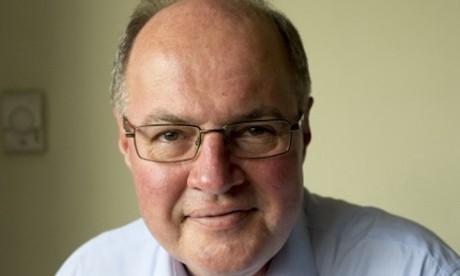The resignations of two bishops on child sex abuse allegations in the past six weeks and the Vatican’s handling of these latest cases has again prompted questions on how the world’s oldest monarchy handles controversy: It ignores it.
In both cases – a nuncio to the Dominican Republic and, most recently, an auxiliary bishop in a diocese in southern Peru – it needed police reports and journalists’ questions to bring the charges and the Church’s response to light.
This is an all too familiar pattern in Western countries where the denial of reality has left the Church to be seen covering up its faults and actually complicit in the crimes once proven. The fallout in a demoralized local Church is another unfortunate outcome.
In any other large organization, protocols and procedures would fall into place immediately to acknowledge such events and what the organization is doing in response. Apparently not so for the Vatican.
Head Vatican spokesman, Father Federico Lombardi, told me in a recent interview that over the last six months his work has intensified for two reasons: In keeping up with a pope who scripts his own actions and talks openly, and the absence of any structure in the Vatican for receiving and then distributing authorized information.
Come something like the standing down of two bishops pending charges and court procedures, and with all the presumption of innocence in the world until conviction, the Vatican media office is paralyzed.
It shouldn’t be. Every organization in the world has contingency media plans in times of transition and for unpredictable crisis situations. Not so the Vatican, or so it seems.
The challenge of handling hot-button Catholic issues will only intensify if the first six months of the new papacy are anything to go by.
The pope has already defused one of them – homosexuality – in a single line: “Who am I to judge?” and ended what is now three and a half decades of attacks by Vatican officials on homosexuality as an “intrinsic” evil which is about as bad as you can get in the Vatican lexicon of failures.
Next month, at a meeting of the group of eight cardinals who are to be a sort of kitchen cabinet, Pope Francis has put one of his burning desires and everyone else’s hot-buttons front and center: the divorced and remarried in the Catholic Church.
Turned away – which they’ve done in their millions – divorced and remarried Catholics are punished for the failure of the biggest risk in their lives with ecclesial exclusion and an implicit lifelong negative judgment. Not good enough says Papa Bergoglio.
And there are more difficult issues to come. Women in the Church’s ministry, the celibacy of the Latin Rite (Roman) clergy, reform and transparency in the operations of Vatican offices, the role of bishops, bishops’ conferences and regional collections of bishops’ conferences have all been flagged either by the pope or his new secretary of state, Archbishop Parolin.
All of these have been in the “too hard” basket for more than three decades. One of these with special significance in Asia is also expected to surface in the near future.
For over three decades, the issue of the uniqueness of Christ and Christian revelation in the context of religions whose origins predate Jesus himself has been the subject of censorship and prosecution by Vatican officials to the extent that theologians in Asia are afraid to even ask questions, let alone propose answers.
Those who have tried have been excommunicated (Tissa Balasuriya, later revoked) and condemned (Jacques Dupuis) for mentioning the subject.
Others who have wanted to enter the debate have, as they’ve told me, been cowed into silence for fear of the wrath of the Congregation of the Doctrine of the Faith and its extensive network of spies and reporters throughout the world who “dilate” (to use the technical term) or report miscreants to what was called for 500 years the Holy Office of the Roman Inquisition.
Its style of operation has been mortally wounded in the first six months of this papacy and especially in the lengthy interview given by the pope that appeared in 12 languages late last Thursday and was published by UCAN on Friday.
The pope lamented the preoccupation with rules and compliance with minutiae, not to mention liturgical paraphernalia and overdressing by clerics, preferring to focus on what is central to Catholicism – the journey of faith, the Gospel and the Sacraments.
The outstanding issues for reform of the Church are well known and named above. I think we all need to strap ourselves in for a rough ride in the coming months and years. Meanwhile, let’s hope that the Vatican’s information service can be of more help than it has been in cases like those of the two disgraced bishops in the past six weeks.
- Michael Kelly SJ in ucanews.com
- Published with permission
Michael Kelly SJ is the executive director of the UCAnews
